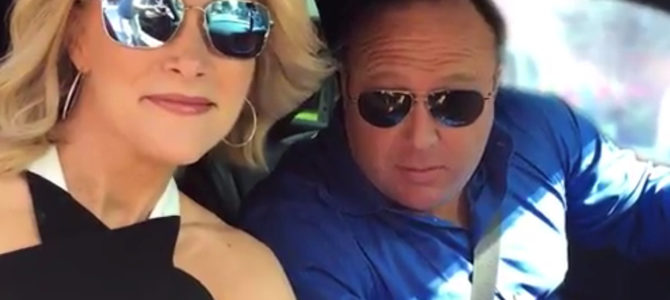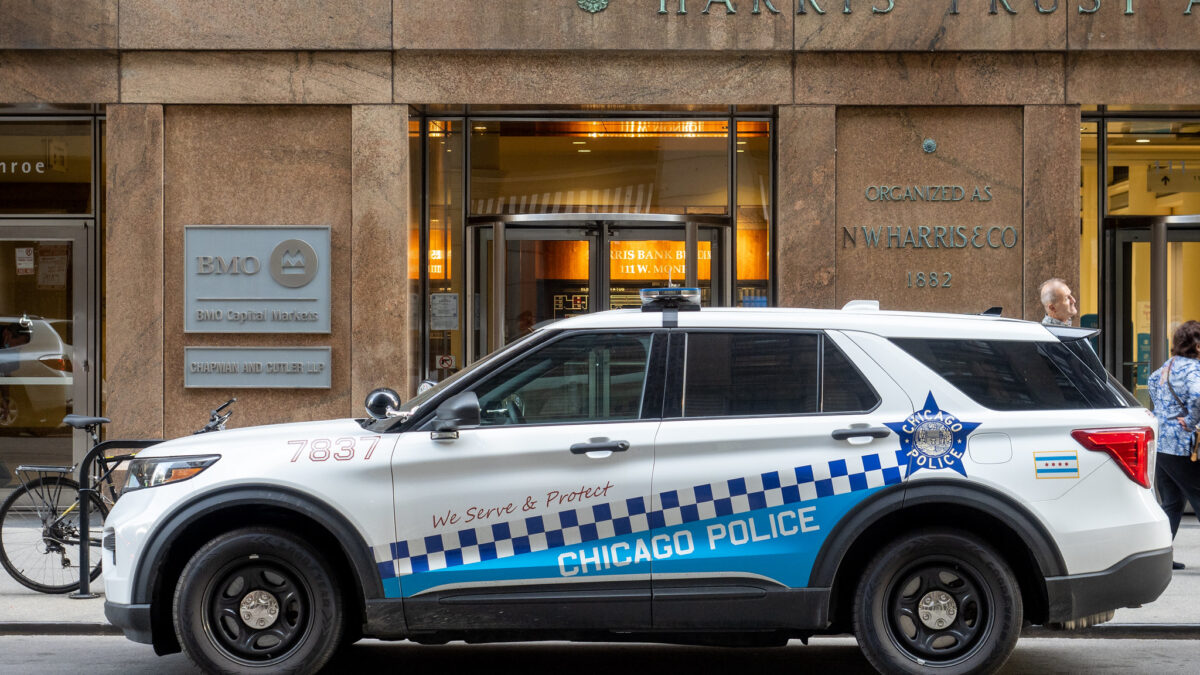
The racket over Megyn Kelly’s interview with conspiracy-monger Alex Jones this coming Sunday is so utterly preposterous, I assume it was hatched by some PR genius in the NBC News department to drum up ratings. That’s because the notion that a national figure who is famous enough to repulse millions is too controversial to be interviewed undermines one of the purposes of journalism.
Yet J.P. Morgan has pulled its ads over the interview (their right, of course). Kristin Lemkau, J.P. Morgan’s chief marketing officer, tweeted that as “an advertiser, I’m repulsed that @megynkelly would give a second of airtime to someone who says Sandy Hook and Aurora are hoaxes.”
It is true. At times the media props up distasteful fringe personalities to create impressions that are politically useful — say, the absurd amount of attention Richard Spencer or David Duke attract. But, the sad fact is that Jones, who’s interviewed the president, has built a considerable audience, and understanding what he’s about is helpful in comprehending where we are in American political life.
So repulsion can’t be a standard for avoiding an interview with a newsmaker. If it is, Kelly’s critics have to explain what makes Jones so special. If segments on a conspiracy theorist are enough to withdraw ads, what about those with killers? A number of modern serial killers have interviewed on national television, from David Berkowitz to Charles Manson to Jeffery Dahmer to John Wayne Gacy. They won’t be the last.
Do these kinds of interviews serve the public interest? I imagine we watch because of a morbid curiosity about evil, but isn’t there also a journalistic worth to providing Americans information about what happens in this world and letting them make sense of it themselves?
How about terrorists? Are they repulsive? In 2000, Timothy McVeigh was interviewed on “60 Minutes,” then by far the most-watched news show on television. Pre-9/11, Osama Bin Laden cogently laid out his philosophy in a 1998 ABC News interview. Yasser Arafat, the man who virtually invented modern terrorism, spent time on all major networks for decades. For that matter, is Vladimir Putin, whom an overmatched Kelly interviewed only last week, less repugnant than Jones?
In the end, the problem with such interviews isn’t that the subject is unsavory but rather that the questions are useless. In early 2003, Dan Rather, then perhaps the nation’s premier journalist, interviewed Saddam Hussein, who was a mass murderer, a torturer of women and children, and a war criminal. Rather allowed “President Hussein” to make one outrageous assertion after the next. For instance, Hussein claimed, without any pushback, that 100 percent of people had voted for him in the last election. The dictator was so unfazed by Rather’s questions that he later aired the interview on every Iraqi channel.
The gold-standard for tough questions was the great Italian journalist Oriana Fallaci, who made her living conducting compelling interviews with world leaders, many of them disagreeable. Henry Kissinger once claimed that his interview with Fallaci was “the single most disastrous conversation I have ever had with any member of the press.” In 2006, after her death, Christopher Hitchens juxtaposed Rather’s cowardly interview with Hussein to Fallaci’s grilling of the shah of Iran years earlier:
Here is an excerpt from an interview with what our media culture calls a ‘world leader’:
Dan Rather: Mr. President, I hope you will take this question in the spirit in which it’s asked. First of all, I regret that I do not speak Arabic. Do you speak any … any English at all?
Saddam Hussein (through translator): Have some coffee.
Rather: I have coffee.
Hussein (through translator): Americans like coffee.
Rather: That’s true. And this American likes coffee.
And here is another interview with another “world leader”:
Oriana Fallaci: When I try to talk about you, here in Tehran, people lock themselves in a fearful silence. They don’t even dare pronounce your name, Majesty. Why is that?
The Shah: Out of an excess of respect, I suppose.
Fallaci: I’d like to ask you: if I were an Iranian instead of an Italian, and lived here and thought as I do and wrote as I do, I mean if I were to criticize you, would you throw me in jail?
The Shah: Probably.
Fallaci, a conventional liberal in the best sense of the word, didn’t save her scorn or awkward questions for targets of Left. When interviewing the last shah’s revolutionary successor, Ayatollah Khomeini, Fallaci pressed him on the new government’s theological segregation and abuse of women. One of the testy exchanges went like this:
KHOMEINI: This is none of your business. Our customs are none of your business. If you do not like Islamic dress, you are not obliged to wear it. Because Islamic dress is for good and proper young women.
FALLACI: That’s very kind of you, Imam. And since you said so, I’m going to take off this stupid, medieval rag right now. There. Done. But tell me something. A woman such as I, who has always lived among men, showing her neck, her hair, her ears, who has been in war and slept in the front line in the field among soldiers, according to you, is she an immoral, bold and unproper woman?
If dictators, strongmen, killers, or conspiracy theorists aren’t confronted with the questions they deserve to answer, or in some way dictate the questions they expect to hear, the exchange is worthless. And, I’m sorry, Alex Jones is no Ayatollah Khomeini.
I certainly don’t consider myself an expert on Kelly’s career, but I do recall her pressing several guests on Fox News over the years with good questions. If she gives Jones a platform to sell his half-baked philosophy and media empire, then her interview will be a failure. If she doesn’t shy away from confronting him, she will be doing her job.









